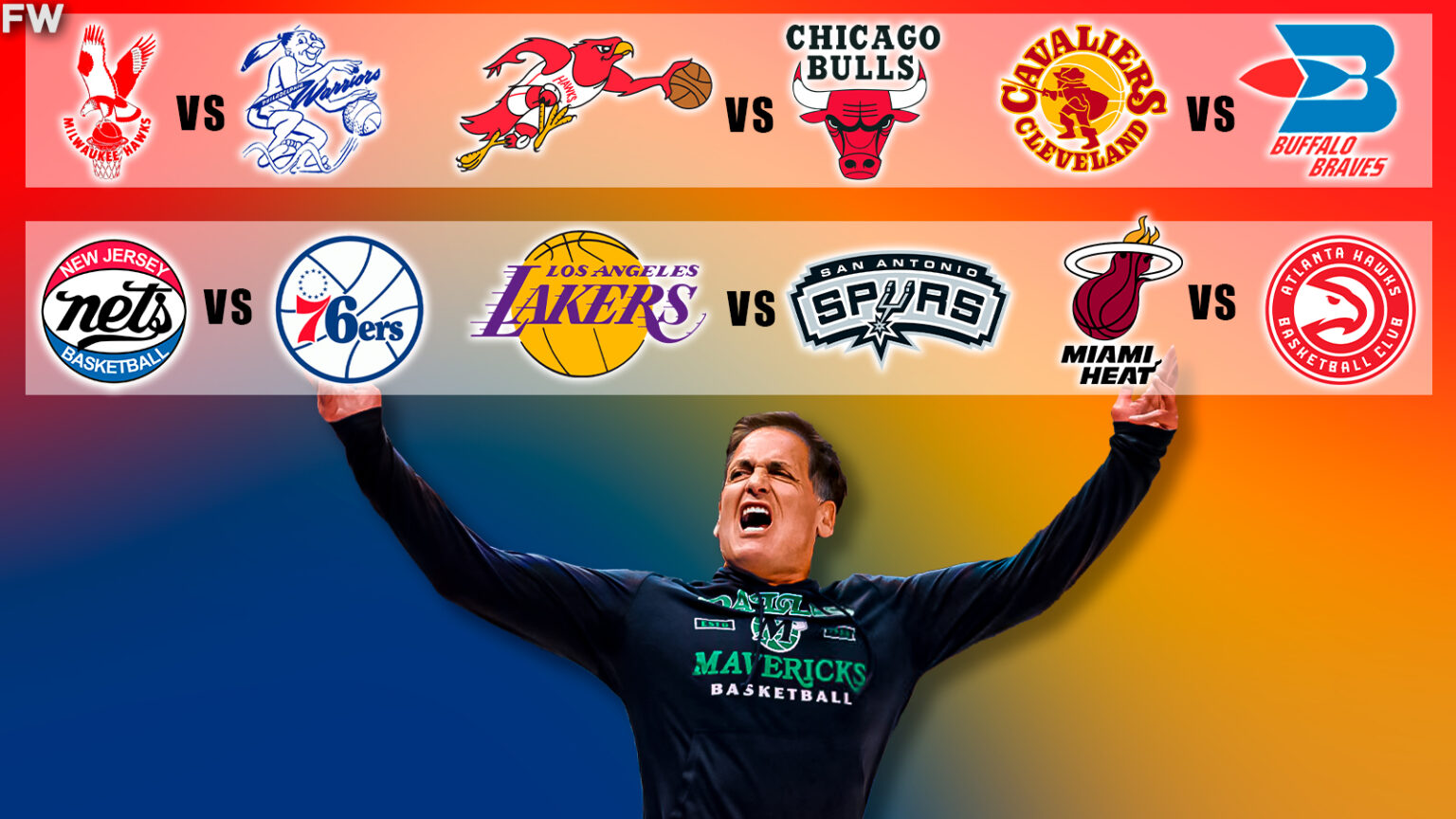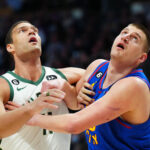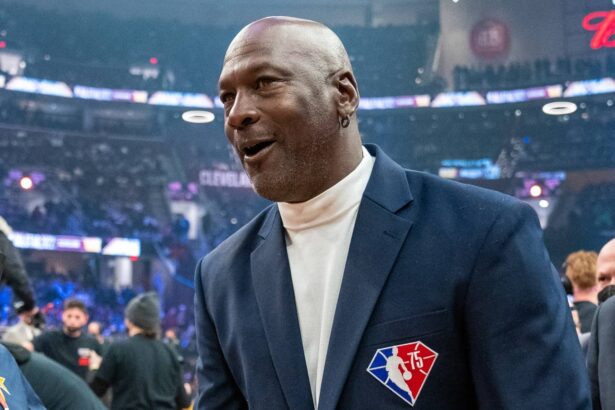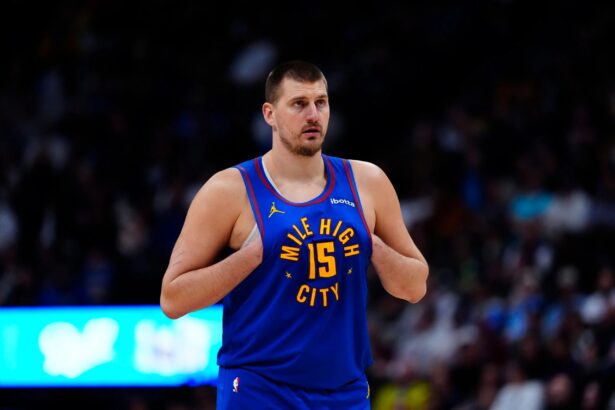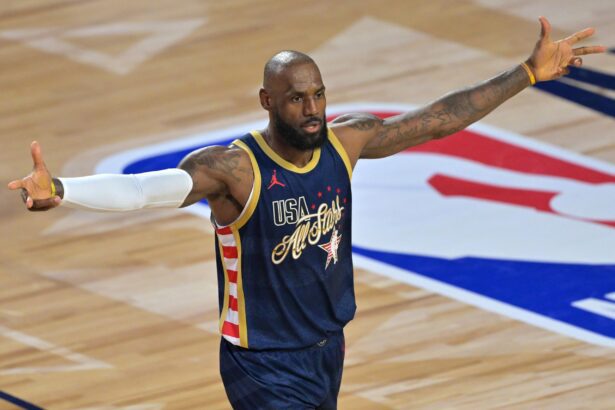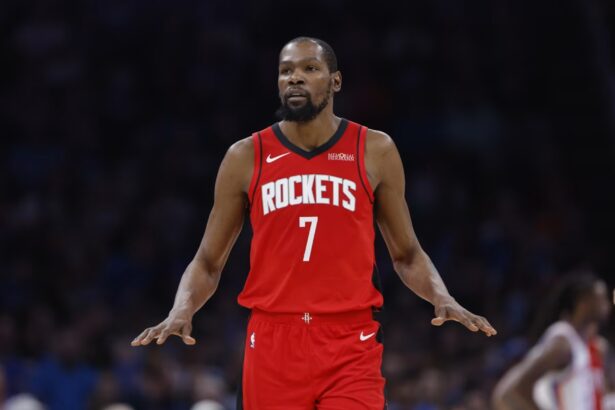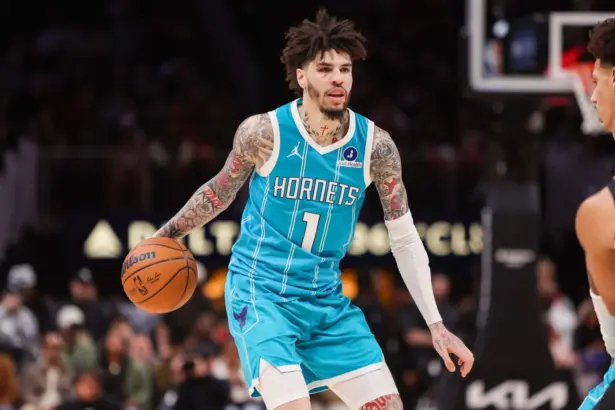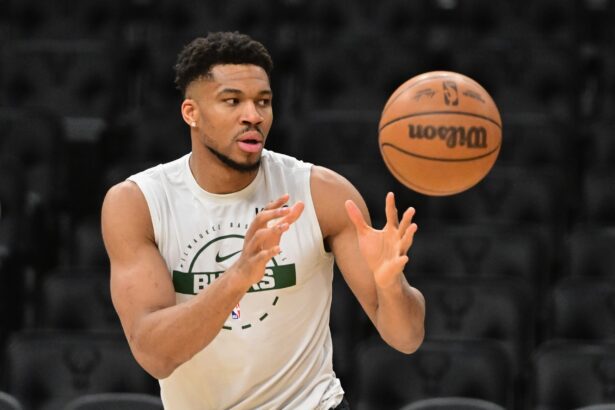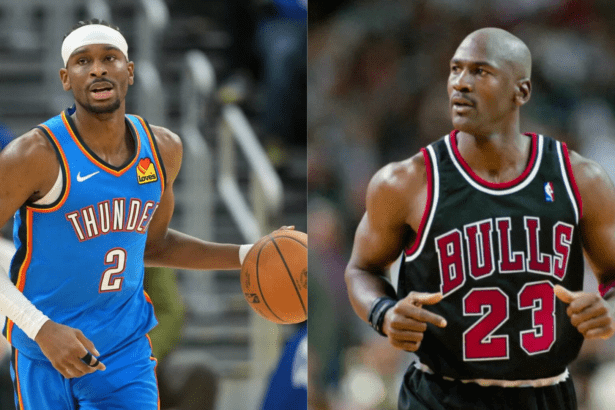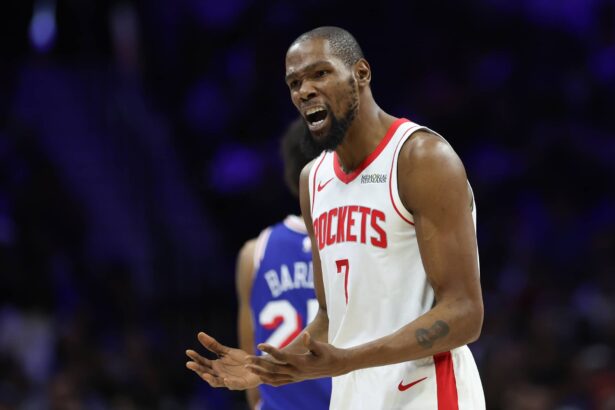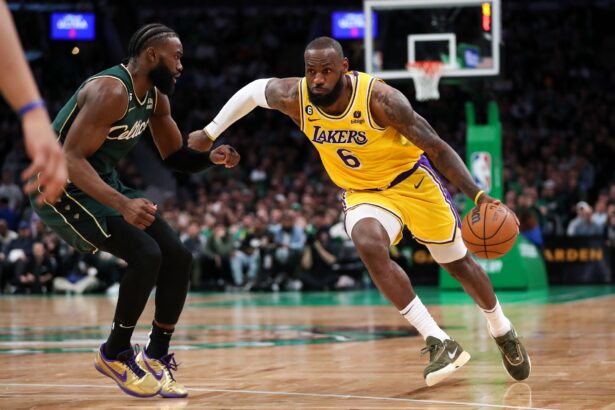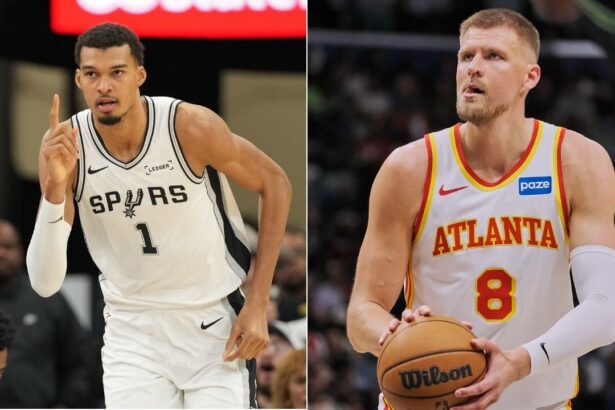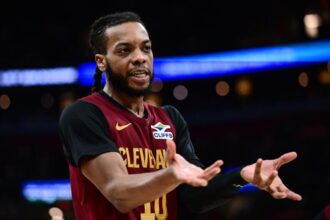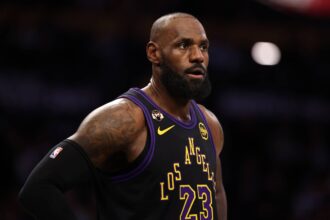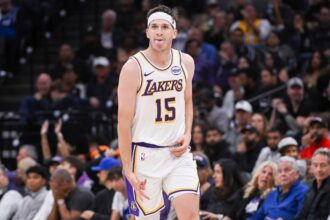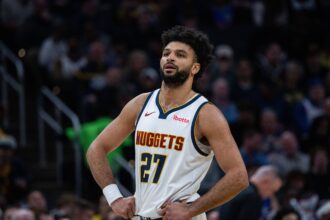The Dallas Mavericks have a real issue with the NBA and its referees after their 127-125 defeat against the Golden State Warriors on March 22, 2023. In the third quarter, with 1:56 remaining, the unthinkable happened.
- November 28, 1952: Milwaukee Hawks vs. Philadelphia Warriors
- November 6, 1969: Atlanta Hawks vs. Chicago Bulls
- December 3, 1971: Cleveland Cavaliers vs. Buffalo Braves
- November 8, 1978: New Jersey Nets vs. Philadelphia 76ers
- November 30, 1982: Los Angeles Lakers vs. San Antonio Spurs
- December 19, 2007: Miami Heat vs. Atlanta Hawks
The Mavs team lined up at the wrong basket, giving the Warriors an easy, wide-open slam dunk by Kevon Looney. Before this error, the game score was 88-87 in favor of the Warriors, so the dunk increased Golden State’s lead to 90-87.
These extra two points may not seem to be a big deal, as the Mavs were still only down three points, and they still had the entire fourth quarter to play. But when you realize the game ended in a two-point victory for Golden State, that miscue by Dallas cost them the game.
The reasoning behind Dallas’ blunder was that the referees of the game switched the call, which was originally Dallas ball, to Golden State possession, and did not tell this to the Mavs. This type of error is added to a long list of complaints against the NBA referees this season.
Dallas Mavericks owner Mark Cuban gave his two cents about the error of the referees in a passionate tweet:
https://twitter.com/mcuban/status/1638726798698586116
“For those wondering about the play with 1:54 to go on the 3rd, let me explain what happened. The ref called Mavs ball. The announcer announced it. Then there was a timeout. During the time out, the official changed the call and never told us. Then when they saw us line up as if it were our ball, he just gave the ball to the warriors. Never said a word to us, they got an easy basketball. Crazy that it would matter in a 2 point game. Worst officiating non-call mistake possibly in the history of the NBA. All they had to do was tell us and they didn’t.”
There is now talk going around that the NBA might, or at least should, overturn the outcome of the game and let the two teams replay from the time of the error. This comes in light of the news that Cuban is planning on filing a protest of his Mavs loss to the Warriors.
The question that now has to be asked is, first, would the NBA actually consider this? And second, has this ever happened before in NBA history? Has a team protested a loss and successfully got the outcome of the game overturned?
The answer to these questions might come as a shock to NBA fans, but yes, it has happened. Not only did the NBA overturn an outcome of a past game, but it has happened six times in NBA history.
Here are the six games in NBA history that were successfully protested.
November 28, 1952: Milwaukee Hawks vs. Philadelphia Warriors
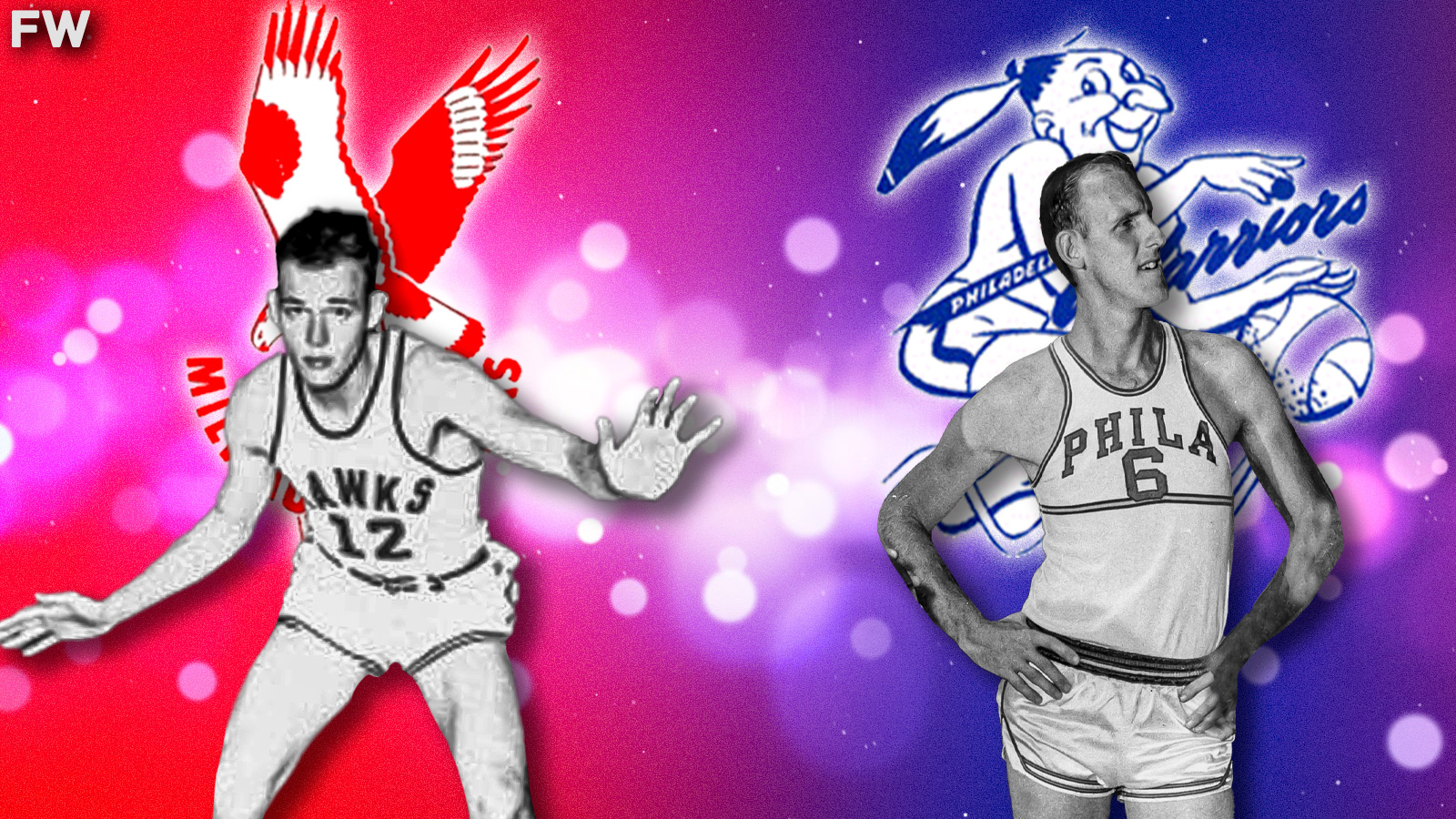
The 1952-53 NBA season was much different than it is today. For one, there were only 10 NBA teams, not 30, as there are today. And for two, there were only three rounds in the playoffs, not four, as is today.
One thing that did occur in the 1952-53 season that made history was seeing the first successful NBA game protest after there was controversy in the game. The game occurred on November 28, 1952, and was between the Milwaukee Hawks and the Philadelphia Warriors.
At this time, the Hawks and the Warriors were the two worst teams in the league, as they both finished last in their divisions. Still, each team wanted to win as much as they could, especially the Warriors, who protested the Hawks’ 78-77 victory in double overtime.
In the game, the Hawks were left with only four available players because of some disqualifications in the game. The referees allowed the Hawks to play a fifth player, which shouldn’t have been allowed.
The Hawks were led by Don Boven, who scored 20 points, and Mel Hutchins, who chipped in 17 points and 24 rebounds. For the Warriors, they were led by Neil Johnston’s 21 points, while Joe Fulks added 18 points.
After the Hawks won 78-77 in double overtime, the Warriors rightfully protested the outcome. The Warriors won their protest, and the game was not counted on their records, so the Hawks’ victory was wiped off the board.
The two teams would replay the entire game on March 11, 1953, and the Warriors got the win with a 72-69 victory in overtime. This time around, the Hawks were led by Mel Hutchins’ 20 points, while Neil Johnston and Joe Fulks led the way for the Warriors once again, with 26 and 23 points, respectively.
It’s safe to say the Philadelphia Warriors made the right call by protesting the game. It changed a possible loss into a victory, and that’s the best thing any team can ask for.
November 6, 1969: Atlanta Hawks vs. Chicago Bulls
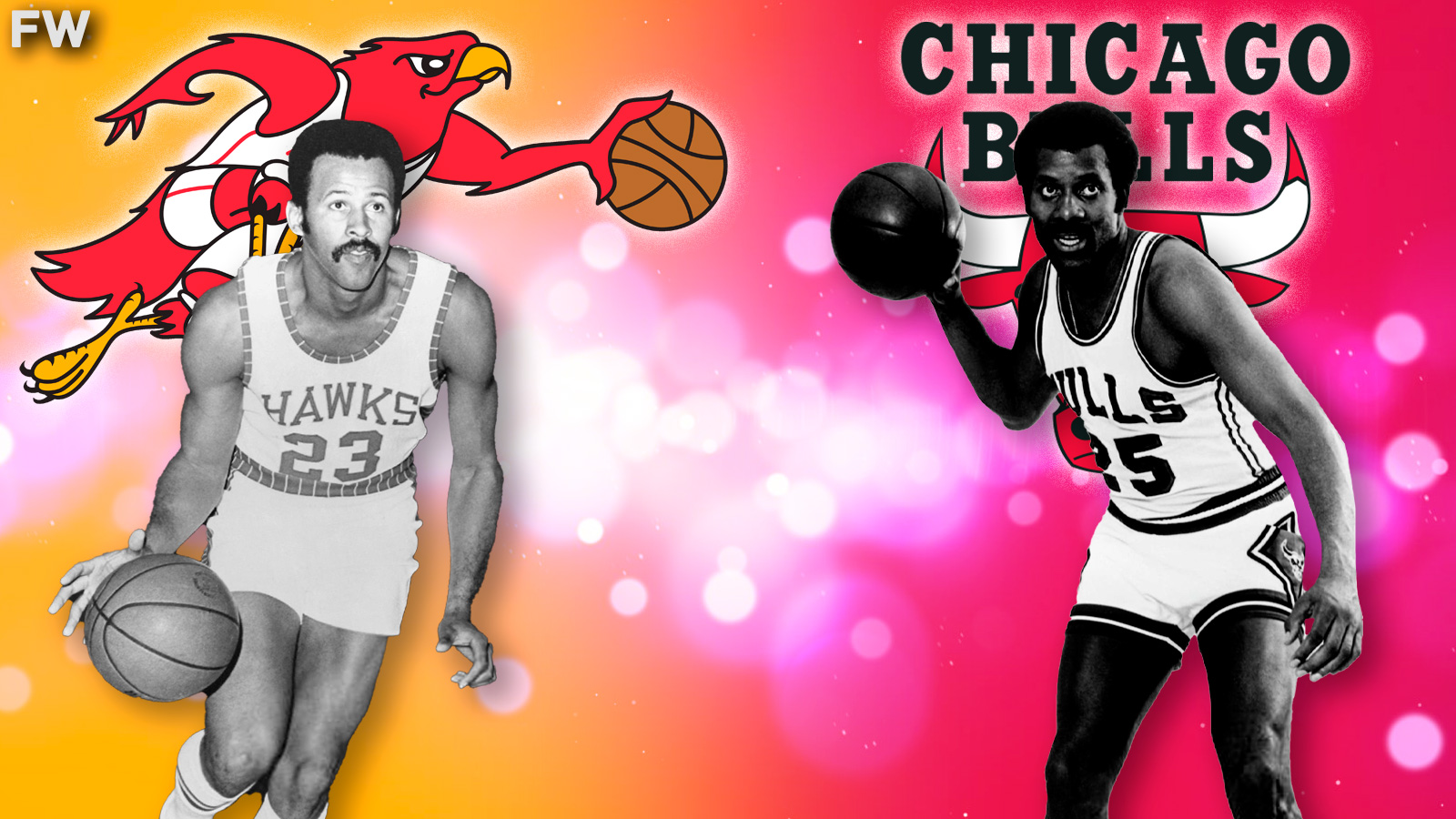
The Hawks were involved in the next protested game in the NBA, which occurred on November 6, 1969. This time, the Hawks played in Atlanta, and they took on the Chicago Bulls.
The game ended up being known as the “Phantom Buzzer Game” because Bulls center Tom Boerwinkle tipped the ball in at the buzzer, tying the game at 124-124. The thing is, the referee waved off the basketball because Boerwinkle’s tip came after the buzzer.
What makes this situation strange is there was still one second remaining on the game clock. It didn’t matter; the referee ended the game with the Hawks winning 124-122.
Chicago immediately protested the game, and the NBA agreed with Chicago that the tip-in should have counted, and they did count it, scheduling for the two teams to replay the ending with one second remaining tied at 124-124, before their next scheduled meeting, which was on February 2, 1970.
More controversy occurred in the restart of the game, as the Hawks had possession, the clock hit zero, and yet, no buzzer sounded this time. After some deliberations, the referees agreed to send the game into overtime and have the two teams play it out.
The Hawks would go on to win the game in overtime by a score of 142–137. Atlanta was led by Lou Hudson, who scored 30, while Chicago saw Chet Walker score 29 points.
The NBA did the right thing by letting the game resume with one-second remaining. While it may not be ideal to replay a game, it’s better to get the game’s outcome right rather than have it end in controversy.
December 3, 1971: Cleveland Cavaliers vs. Buffalo Braves
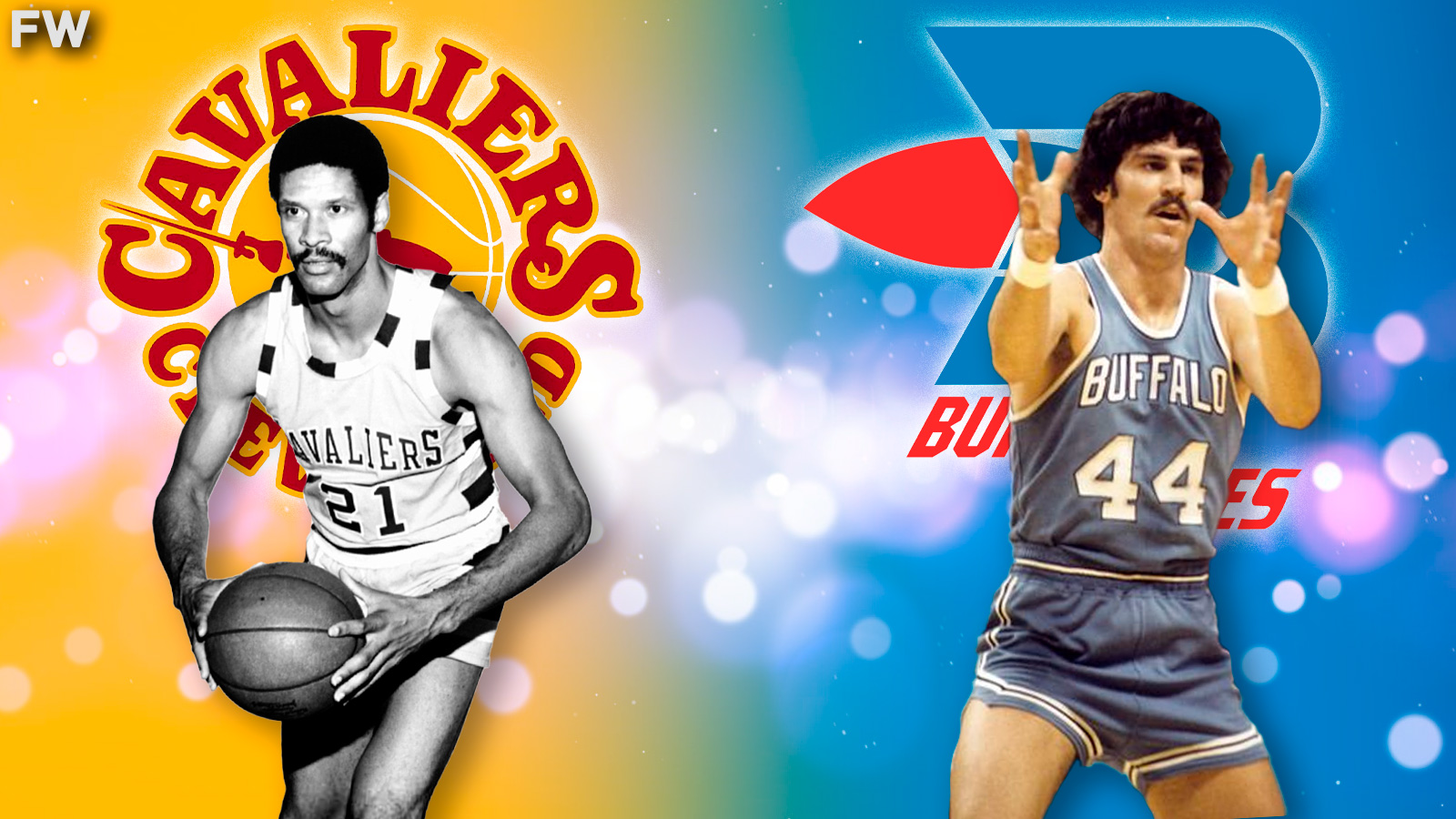
The NBA would only have to wait about two years to see another team protest the outcome of a game. This time, the Cleveland Cavaliers protested the outcome against the Buffalo Braves.
What happened was, with four seconds remaining, Walt Hazzard of the Braves nailed a free throw, which gave the Braves a 91-90 victory. The problem was what happened after the Cavs called a timeout.
Rules state that after a timeout in that situation, the Cavs should have inbounded the ball at mid-court, yet, the referees gave the Cavs the ball at the end-line. As mentioned, the Braves walked away with the victory, so the Cavs felt their positioning with only four seconds remaining gave them a disadvantage, and they would be right.
So, Cleveland protested and won, with the NBA making the two teams replay the last four seconds after they played their next game against each other, which was on February 1, 1972. The game was replayed with the Cavs receiving the ball at the mid-court, but unfortunately for Cleveland, the outcome would remain the same.
The Braves walked away (again) with a 91-90 victory, with Bob Kauffman leading the way with 23 points. Butch Beard and Charlie Davis each scored 18 for the Cavs in the loss.
November 8, 1978: New Jersey Nets vs. Philadelphia 76ers
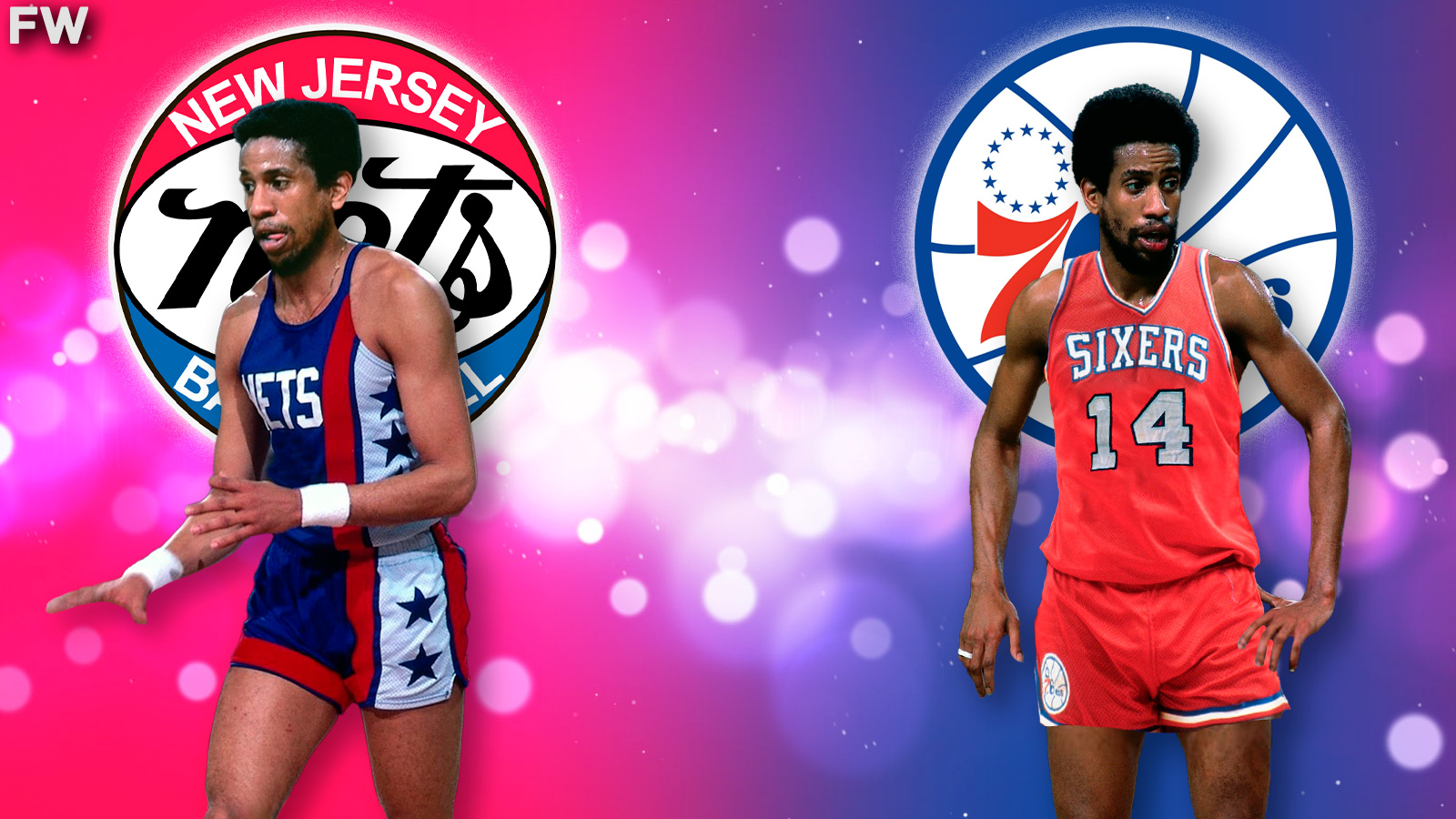
The fourth time a team successfully protested a game occurred on November 8, 1978, and the two teams involved were the New Jersey Nets and the Philadelphia 76ers. In this game, the Nets protested their 137-133 loss to the 76ers.
The issue came when the Nets’ coach, Kevin Loughery, was assessed three technical fouls, which is one more than the maximum a player or coach can receive. The Nets wanted the NBA to declare them the winners of the game because of this error.
Larry O’Brien, the commissioner at the time, disagreed with giving the Nets the victory, but he did agree the Nets’ coach should not have been given three technical fouls. So, the NBA awarded the Nets the chance to replay the game from the time their coach received his third technical.
The referee who gave the technical foul, Richie Powers, was suspended five games without pay by the NBA “for failure to comply with league procedures.” This was a bold message sent by the NBA to make sure their referees call the game the right way.
The restart game was played on March 23, 1979, and they began to play at the 5:50 mark in the third quarter, with the score being 84-81 in favor of the 76ers. What happened in the replay game would make NBA history.
From the time New Jersey originally played Philadelphia (November 8, 1978) to the replay game on March 23, 1979, the Nets and 76ers made a trade with each other. New Jersey sent Eric Money and Al Skinner to Philadelphia, while the 76ers sent Harvey Catchings and Ralph Simpson to the Nets.
So, for the first and only time in NBA history, three of the four players (Money, Catchings, and Simpson) played on both teams in the same game. The Nets would lose in their replay game, this time by a score of 123-117, and there would be no protest this time.
For the craziest box score in NBA history, Eric Money played 8 minutes for the 76ers, scoring 4 points. Money then played 27 minutes for the Nets and scored 23 points.
Harvey Catchings played 14 minutes for the Nets and scored 8 points while playing 2 minutes for the 76ers and not scoring a single point. And finally, Ralph Simpson saw 13 minutes of action for the 76ers and scored 8 points while being held scoreless in only 2 minutes for the Nets.
November 30, 1982: Los Angeles Lakers vs. San Antonio Spurs
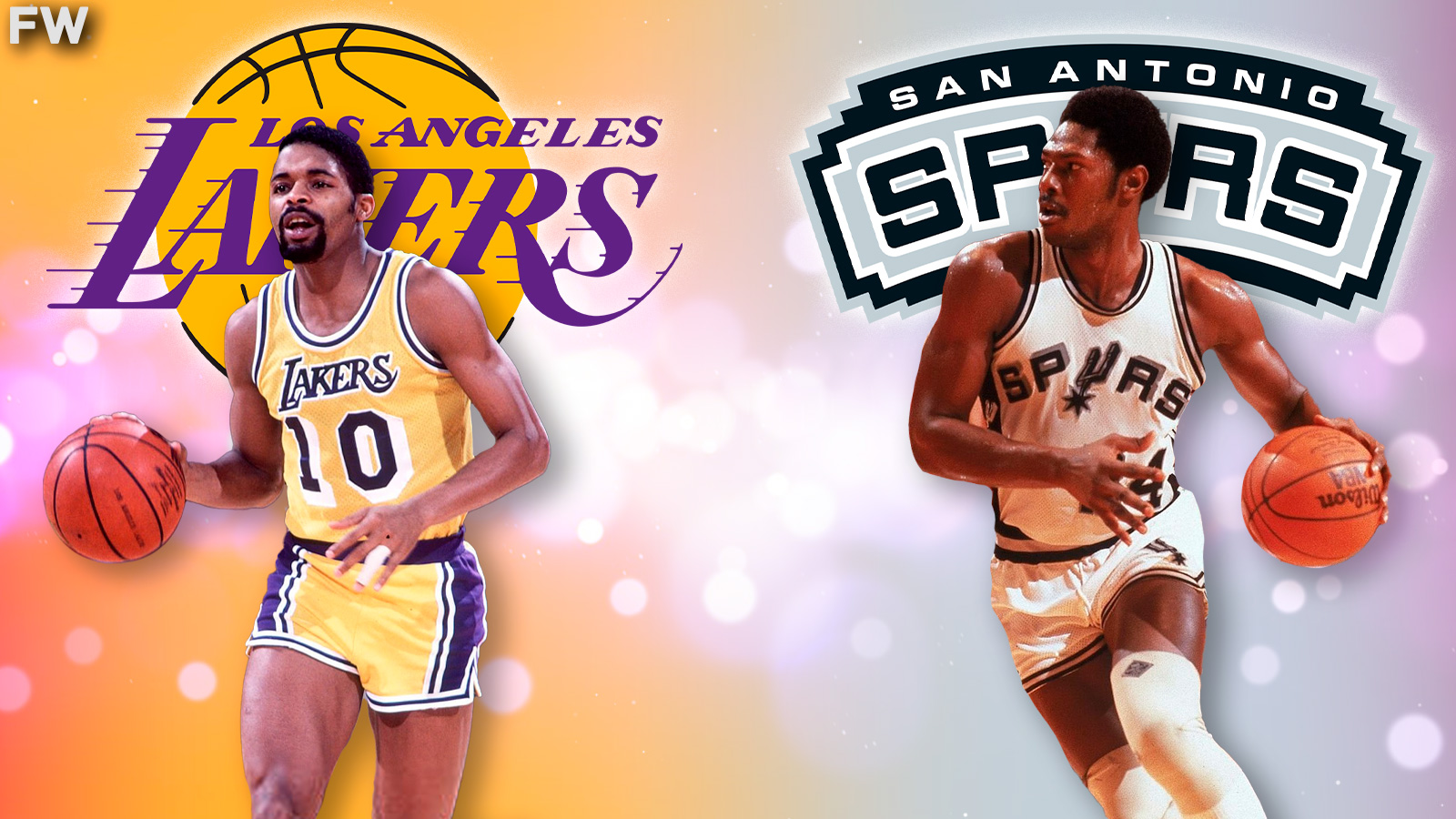
The fifth instance of a team successfully protesting the outcome of a game occurred on November 30, 1982, when the Los Angeles Lakers played the San Antonio Spurs. At the end of the game, the Lakers walked away with a 137-132 victory in double overtime, but there was some controversy.
At the end of the game, Norm Nixon was at the free-throw line for the Lakers. There were only three seconds remaining in the game, and the Lakers were trailing the Spurs 116-114.
Nixon went to attempt his free throw and made his normal shooting motion, but yet, he did not take the shot. The referee blew his whistle and called a double lane violation since players on both teams stepped in the lane.
The two teams now had to perform a jump ball to see who would get possession, and the Lakers would win the tip. The ball would, of course, end up in Nixon’s hands, and he sank a shot to send the game into overtime.
There, the game would see two overtimes before LA walked away with the 137-132 victory. The Spurs protested the call because they believed after the double lane violation, the referees should have had Nixon retake his free throw, not award a jump ball.
The NBA agreed and scheduled the replay on April 13, 1983, with the two teams starting with three seconds remaining and Nixon back at the line to take his free throw. This time, the Lakers would not tie the game and lose 117-114 in regulation.
Nixon, the man behind the controversy, led LA with 23 points, and he added 11 assists. Kareem Abdul-Jabbar added 21 points and 9 rebounds, while Magic Johnson finished with 17 points, 8 rebounds, and 9 assists.
Mike Mitchell led the Spurs with 25 points, while Artis Gilmore added 16 points and 16 rebounds in the victory. The Spurs did the right thing by protesting the call, and it turned their defeat into a well-deserved victory.
December 19, 2007: Miami Heat vs. Atlanta Hawks
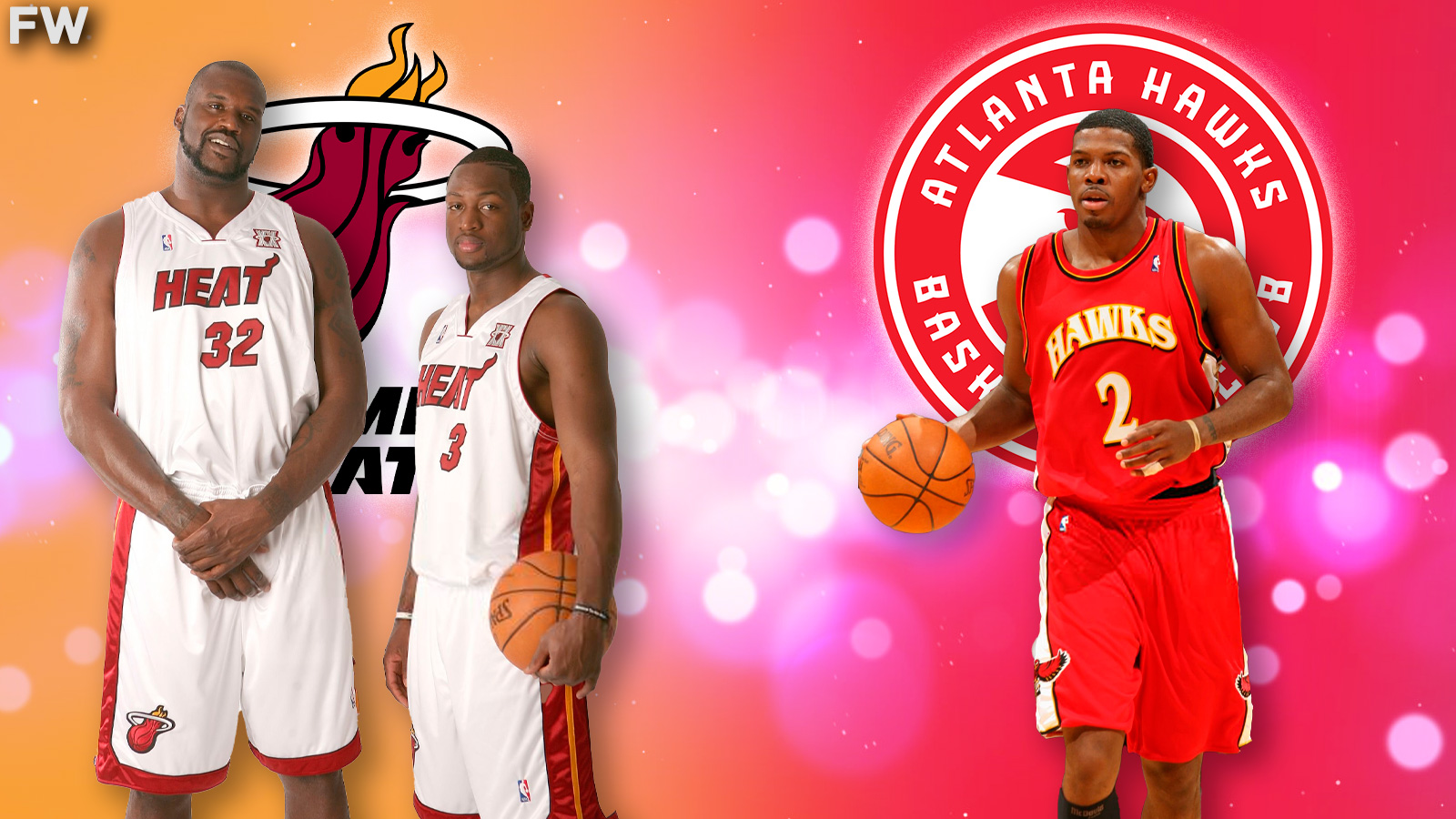
The Miami Heat, led by Dwyane Wade and Shaquille O’Neal, took on the Atlanta Hawks, who were led by Joe Johnson, on December 19, 2007. This would be the last occurrence of an NBA game being successfully protested over its outcome.
With 51.9 remaining in overtime, the Hawks led 112-111 when Shaq was called for a foul on Al Horford. This foul on Shaq was initially recorded as his sixth foul, so Shaq had to leave the game.
Atlanta ended up defeating Miami 117-111, but the Heat was ready to protest the outcome. The reason was the foul count on Shaq. The foul was only Shaq’s fifth foul, not his sixth, so the big man should have been able to stay in the game.
The NBA agreed with this, as they found out that with 3:24 left in the fourth quarter, a foul was called on the Heat’s Udonis Haslem, but the Hawks’ Official Scorer gave the foul to Shaq instead.
The NBA released an official statement on the matter, which resulted in the Hawks being fined $50,000:
The NBA today granted a game protest filed by the Miami Heat after its 117-111 loss to the Atlanta Hawks on December 19 at Philips Arena, which will result in the replay of the final 51.9 seconds of the game’s overtime period with the Hawks leading 114-111. The replay will occur immediately prior to the next scheduled game between the two teams — on March 8, 2008, also at Philips Arena.
The Heat protested the game because, with 51.9 seconds remaining in overtime, the Hawks’ scoring table personnel incorrectly disqualified the Heat’s Shaquille O’Neal – asserting that a foul committed by O’Neal was his sixth foul of the game, when in fact it was only his fifth. The error occurred because the Hawks’ Official Scorer mistakenly attributed to O’Neal a foul at 3:24 remaining in the fourth period that was actually called against the Heat’s Udonis Haslem.
NBA Commissioner David Stern found that the Hawks were grossly negligent in committing this scoring error, since they failed to follow league-mandated scoring procedures and failed to respond effectively when the members of the statisticians’ crew noticed the mistake. Because of this conduct by Atlanta’s personnel, Miami suffered a clear competitive disadvantage, as O’Neal – the Heat’s second leading scorer and rebounder that night – was removed from a one-point game with only 51.9 seconds remaining. Under this unprecedented set of circumstances, the Commissioner granted the Heat’s protest, and fined the Hawks $50,000 for their violation of league rules.
The protest is the first granted by the NBA since December 14, 1982 when then-NBA Commissioner Larry O’Brien upheld a protest by the San Antonio Spurs concerning their 137-132 double overtime loss to the Los Angeles Lakers on Nov. 30. The Spurs and Lakers finished the game on April 13 with San Antonio collecting a 117-114 win.
The game was resumed on March 8, 2008, at the 51.9 seconds mark in overtime. The score was 114-111 since Horford made his two free throws. The final score remained 114-111, as no one scored, giving the Hawks the victory once again.
Dwyane Wade led the Heat with 36 points and 10 assists, while Shaquille O’Neal added 16 points and 7 rebounds. For the Hawks, Marvin Williams led the team with 26 points and 9 rebounds, while Joe Johnson added 25 points and 9 assists.
What made the situation even stranger was the fact Shaq did not play in the redo game, as he was traded to the Phoenix Suns before the game. A strange ending to the last successfully protested game in NBA history.
You now know about the six games in NBA history that were successfully protested, with the knowledge that only one successful protest has occurred in the last 40 years. Overall, in NBA history, there have been 44 protested games, so in most cases, the protest fails.
So, will Mark Cuban win his protest, giving his Dallas Mavericks another chance at defeating the Golden State Warriors? While it looks unlikely, it is not impossible, as you’ve now found out.
We sincerely appreciate and respect you as a reader of our site. It would help us a lot if you follow us on Google News because of the latest update.
Thanks for following us. We really appreciate your support.

